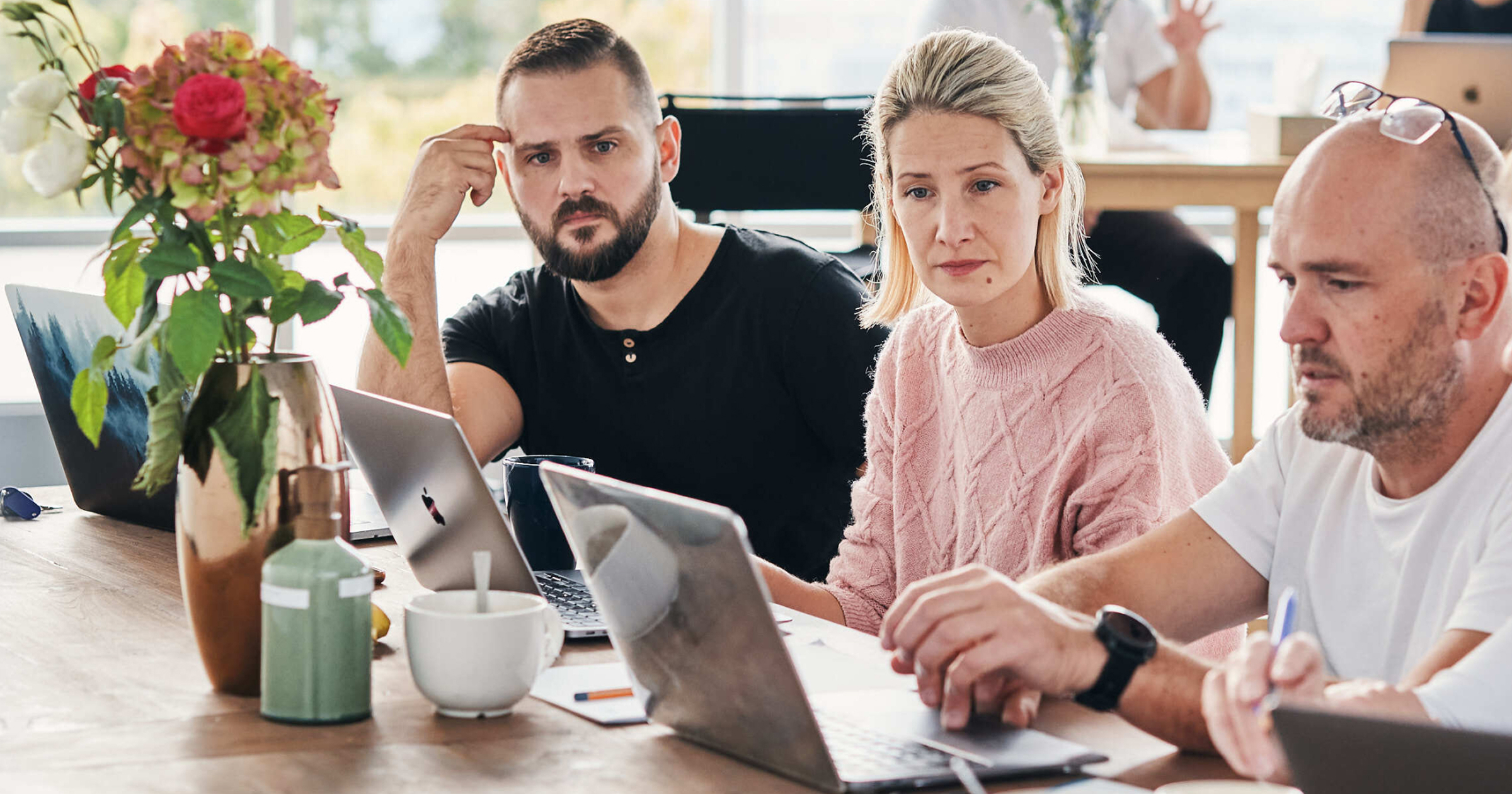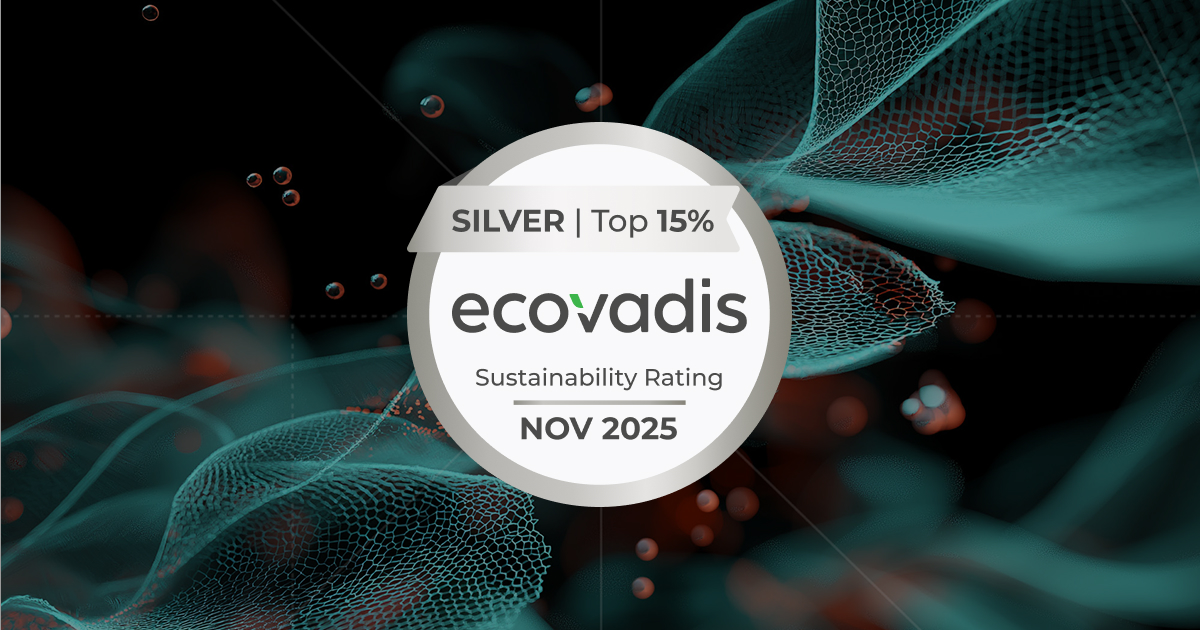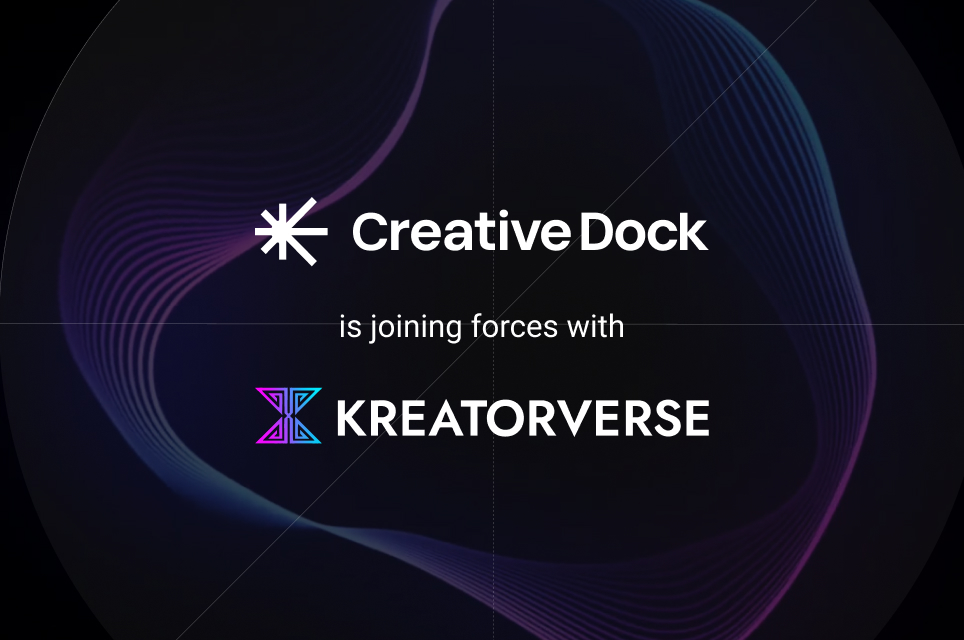Michael O’Sullivan: We are on course for a multipolar world
We caught up again with Michael, who spoke at Creative Dock's Executive Dinner at World Economic Forum in Davos, to talk about why he thinks Europe is the best place to live, what he would recommend for companies looking to become future-proof, why and how the impact of AI on the developed and developing countries is different, or what books are on his desk these days. Read on to find out.

Words by: Jitka Esserova, Photo: Creative Dock's archive

Your topic is globalisation, or more accurately, the end of globalisation. You're addressing what comes after it but before we dive into that, can you define globalisation and frame in time?
That's a very important way to frame the question because there are many people today who say we're still in a globalised world, and that's not the case. So I think if you define globalisation as a world that is highly integrated, interdependent and that's characterised by an intense and broad flow of people, of capital, of commerce and ideas. This is what characterised the world from, let's say, 1990 to 2019 or 2020. And we also had a period of globalisation from 1870 to about 1910, 1912.
And those periods of globalisation are characterised by a number of things. One is a spread of a way of doing things in the last maybe 40 years of democracy, of American capitalism. They're also characterised by commoditisation and the forcing down of prices—low inflation, low-interest rates and generally peace. So last year, we had an explosion in inflation. We've had high-interest rates. We have an awful war. So those three things decisively end globalisation.
Well, we, as a society, still operate that way. We still have massive travel and moving of capital, goods, and ideas… don’t we?
Yes, we still have a lot of trade and economic activity, but that's the business cycle, and that should not be confused with globalisation. Globalisation is a form of behaviour of nations and people, and that form of behaviour has now come to an end. The most simple example is the relationship between the US and China which used to be highly symbiotic. China would provide labour, the US would provide capital, China would export deflation, etc. And many companies still want to sell into China, but they don't really want to invest there. So, you can't have globalisation and at the same time have the two biggest economies, apparently, if we believe the headlines, ready to go to war over Taiwan. So, that's why it's come to an end, and that's why we're in something different now. Instead of globalised, we should talk about a multipolar world.
Yet you said, globalisation has had many positive effects: the growth of wealth and the rise of democracy in many countries… Now we’re heading to a multipolar world, as you call it. What path do you expect to lead to it?
Whenever you get to the end of a very long decisive period like this, the following 10 or 20 years tend to be quite noisy and confusing. There's nothing well defined in terms of the shape of the world order. And I call this period the interregnum – it comes from a word they used in England in the 17th century. It was a period between two Kings, Charles I and Charles II when England was experimenting with a republic. I think today we're in a similar situation. We're leaving one well-defined period and going somewhere else. We're not quite sure what that direction is going to be. And we are probably going to what I call a multipolar world, where you have China, America, Europe, maybe India and the Emirates as well. And they are all going to be very different in terms of having values-based approaches to doing something.
Where does Europe stand in this new multipolar world order? Is it a risk for Europe to build on its humanist foundations?
China has its own very distinctive set of values. Europe is crafting its kind of strategies, its own set of values. That debate is taking place intensely in Poland and Hungary, for example, and Hungary, in particular, is a kind of rogue nation in terms of not adhering to European values. And also then in terms of strategic autonomy, which is what Europe does need to do in terms of its industrial structure to make itself relevant in the world. So it's a world of big regions that are not just big, but that they will do things increasingly differently.
How big are the chances for collaboration? Are you optimistic that the path to a multipolar world is a natural evolution which will have a positive effect? Or does it concern you?
There are lots of different paths, and that’s why the new order is not fully formed. Many people in Europe are very nervous that we could have Trump back in the States as president. Or a Trump clone. If so, America would take a very, very different path. And that's unsettling because we've always counted on America as the bastion of capitalism and democracy. And that is no longer a certainty. Currently, Europe is in a much better situation than many people think.
When you say that Europe is probably in better shape than many think, can its strong player, Germany and its relations with Russia weaken Europe? You mentioned somewhere that Germany would have to choose a side…
My answer would be that we're in a world where people have to choose sides. Hungary will have to choose between being a client state of Russia or a proper European state. I think the Czech Republic has clearly made that choice. Ireland will have to choose between having lots of American investment and hardly any Chinese investment. Other countries then will have to make the same choice. Germany has to choose between Russia and Europe, but it also has to choose between America and China. And increasingly, I think Germany will have to be much more circumspect in terms of how it deals with China. Unfortunately, the German Chancellor is a bit ambivalent about China, that then becomes an issue.
How much will this "choosing sides" impact our economy?
Europe is solid in terms of its democracy. It's very solid in terms of being probably the best place to live. I don’t know many people who want to live in the States. I don't know many people who would migrate to China. Europe remains a very attractive place to live. The issue Europe has to crack in this multipolar world is producing big companies. A lot of European companies are still national champions, and we don't have many true pan-European companies that are owned across Europe and also have a unified culture.
I think that's one of the big challenges for the EU and national governments to try and do that. There are some fintechs in Europe and an increasingly thriving VC and private equity area. It just happens quite slowly, I guess.

Let's leave the multipolar world order now and look at AI. Bill Gates claimed that the development of AI is as fundamental as the creation of the microprocessor, the personal computer, the internet and the mobile phone. It will change the way people work, learn, travel, get healthcare and communicate with each other. Businesses will distinguish themselves by how well they use it, stressing the importance of its adoption for future competitiveness. What should we do to leverage AI, and what are the main challenges related to this technology?
I remember when using ChatGPT was quite a niche thing. Now it's become very popular. What is different is that it has created a world where machines can potentially become actors in our world. You can go back to the ancient Greeks and see that they experimented with this idea, and some of the French philosophers, like Rene Descartes experimented with this as well. So it has always been in the human consciousness, but we've never had it on a grand scale. I don't share the catastrophic scenarios of AI ruling the world. AI is probably more within our control than we think. We have the ability to control the data that goes into AI, and that's the really important ingredient.
One of the issues they have in China, even though they made a great leap forward in AI, they're finding that many of the data sets they have are quite siloed. So we have the ability to control the data, we have the ability to control how it's programmed. What I find quite interesting is how the programming of AI still reflects human biases. One of the fascinating areas is how law and philosophy, and regulation are quickly drawing up around AI. There's an interesting AI philosophy centre at Oxford University, and they're trying to frame the use of AI in society in terms of legal and moral terms. Another issue, or challenge, is that if you look at the stock market today in the US, all the gains this year come from nine or ten stocks and all of those are driven by this AI bubble.
There's a lot of money to be made in AI. Where there's money, there's greed, and people do bad things. And the bad guys are very often a step ahead. How can we prevent the misuse of AI?
There are a lot of incentives for people to use AI in ways that are either harmful or don't think about the end consequences. We've seen more and more of that. AI is behind everything we do now. If you book a rental car or a flight, there's AI behind that. So I think several phases are coming: we're in the middle of an AI stock market bubble. We're in the middle of the general public thinking about AI and becoming worried about it, and then we are probably in the middle of regulators beginning to think about how we frame it. Potentially this would be a really good thing that the European Union is quite advanced in this and becomes pan-European and coordinates well with other regions like the US.
However, regulations can sometimes be a bit tricky. For example, how do you draw the line at when technology helps people rather than replaces them? If we fail to regulate the whole thing, and I can think of extremes on both sides now – that we regulate too much or very little – could that lead to social unrest? After all, it's virtually impossible to avoid the news about how AI will dramatically transform the job market.
Across Europe, we have mature labour laws, which is undoubtedly an advantage and it will stop the displacement of people by AI. We also have a generally well-educated population. If you look at what is happening in advanced economies, AI is helping people in their jobs in many areas: teachers, developers, doctors and surgeons. When people adopt a mature view of AI, that it can help them in their jobs, it won't replace them. They become, on the whole, better. It's helping soldiers: if you dig into some of the detail of what's happening, the use of AI and data and intelligence in Ukraine is quite astonishing. So there are a lot of positives. We have to learn just to use it as a tool.
That is the developed world but what about the emerging countries?
Yes, that is my big worry. The countries of middle-income and emerging ones can be hurt by AI. A lot of people in those countries probably don't have the level of expertise to use AI to help them, but they do jobs that can be replaced by AI quite easily. In many of those countries, consumers can also potentially be disrupted and manipulated by AI. Also, bear in mind that it is Western investors who have the capital and control the ownership of AI effectively.
And what can a representative of the state do to support these private organisations and even organisations run by the state? How quickly will states adapt to this rapidly expanding AI bubble?
This is very interesting because what this does, it brings, in many cases, technologists and governments closer together. It’s already the case in China, where the big AI users and developers are close to the state. In the US, the big American companies are close to the state and in Europe, that will also be the case. Countries with well-developed education systems based on math and programming will do well. I live in France, and I can think of École Polytechnique and its close cooperation with the state. What a state can do as well is to control data, access to it, and regulate them. Europe is probably in a good position. It regulates data quite well.
The problem is that many countries are working very slowly, and the AI industry is changing rapidly. The second thing is actually creating an environment in which open-source AI developers can work and thrive.

We were talking about states and their representatives, but what can leaders of private companies and organisations do to be future-proof?
Some people make their careers on this question. You have to innovate. My own bias is that if you want to innovate, you just take clever people who are open-minded and good at working across disciplines. You give them resources, and you give them a broad problem to solve without having to commercialise it. You can argue that it's a laboratory approach but if you have someone even more clever to oversee it and see what happens and what the outcomes are, you can be future-proof. I think big organisations are not good at innovating. Just because they're big, they have processes, bureaucracy, etc. I've seen many times in my career big companies fail to do innovation and that’s the reason why companies like Creative Dock exist. My advice for big companies is if you need to innovate in an area that's not in the core competence, get a startup, partner with a startup or take some of your employees, give them resources and put them physically far away from your company.
Do you have a favourite brand that you see as an example of a great innovative approach, or can you mention someone with a great idea that you believe will be the next big thing?
The example that comes to my mind is a very simple but very successful one. It's a Swiss company that makes running shoes called On. It was founded by an athlete who just wanted a better, good quality and more efficient form of running shoe, so he experimented at home with lots of different materials. And he's now it's now quoted on the stock market. It's now a thriving brand. I remember I visited their offices and factory seven years ago or so and you could just taste the kind of entrepreneurial approach. There's no great technological secret, I suppose, behind what they've done, but they just tried to take a different approach to making the shoes and the dynamic of the shoes. And now they've got a very good brand.
What books are on your bedside table? What are you reading these days?
Lots of stuff. I always tend to read one or two serious books and then fiction. My favourite fiction author is William Boyd, who I think is just a brilliant writer. Then there's an Oxford academic Peter Frankopan, who's written The Earth Transformed on how the environment shapes history—and vice versa. I have to read that book. And then I just finished reading a book called Le Mage du Kremlin about a fictional account of the PR guru in the criminal. It's really good.
Besides your book The Levelling, what else can we read from you? Are you writing something now?
Yes, I am. I write every week, commentaries and notes for my subscribers. It is actually a continuation of the book. Also, I'm writing a book on French democracy. It's coming out in October. I live in France, and that's why I have a preoccupation with France.
Would you like to expand your business through corporate venture building? Check the Creative Dock website. To explore new ways of monetising your existing assets, please contact us directly at business@creativedock.com. Depending on your industry, you'll hear from an expert in your specific industry vertical.
Keep up to date with the latest news in the world of corporate venture building. Subscribe to our monthly newsletter.



.webp)










%20(1).jpg)































































